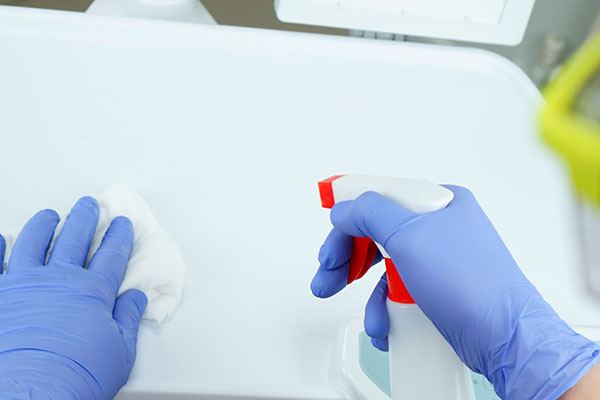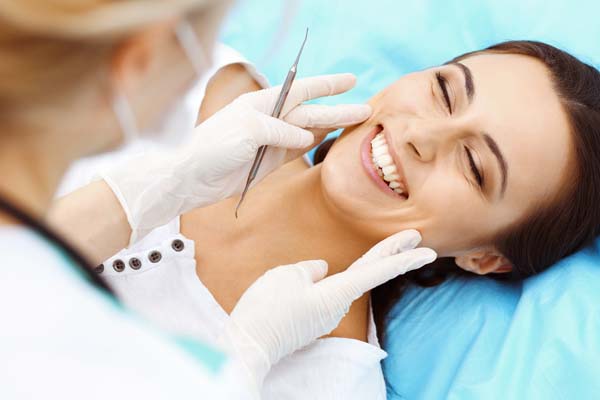Emergency Dental Visit Infection Control Procedures to Protect You During the COVID-19 Situation

Infection control has become the top priority all over the globe as the world battles the COVID-19 pandemic. The Centers for Disease Control has established new guidelines for healthcare providers and dentists to follow as they continue to provide services for patients with the most pressing needs.
The coronavirus is an airborne virus that is very contagious. It is primarily spread by infected airborne droplets making contact with a person's nose or mouth. It can also be spread by contamination since it survives on surfaces for up to 48 hours. The virus can be spread even when the carrier is pre-symptomatic or asymptomatic. The combination of all these things makes infection control a challenging feat.
Infection control measures implemented at dental practices
Here are some of the ways dentists are keeping their patients safe during the COVID-19 pandemic:
1. Emergency care only
One of the ways dentists can reduce their risk of being infected with COVID-19 is by limiting the number of patients coming to their practice. Most dental clinics are only treating patients with dental emergencies, like knocked-out teeth, infections, gum disease, broken teeth, loose teeth and excruciating toothaches.
Teledentistry services are now available for patients dealing with non-emergencies. Depending on the patient's problems, the dentist might be able to diagnose them and instruct them on how to address the problem. Limiting dental services to emergencies helps to protect both dentists and their patients.
2. Protective gear
Dentists also use a variety of protective equipment to protect themselves and their staff when performing treatments. Face masks and shields can help to prevent contaminated droplets from getting on the dental worker's mouth and nose. It does not provide full protection against inhaling harmful airborne microorganisms, but it does provide some level of protection.
Using protective gear is particularly important for dentists since some of the tools used during treatments, like ultrasonic scalers, create aerosols that can be contaminated with the coronavirus.
3. Separating patients
Dentists are now scheduling appointments further apart to reduce the number of people at the clinic at any given time. Current social distancing guidelines recommend spacing people at least six feet apart from each other, and this is factored in when scheduling appointments.
Dentists are also giving their patients the option of checking in and waiting for the dentist in their car. This can provide an additional level of protection for patients.
4. Focus on infection control
Dental clinics have shared areas, like waiting rooms, which need to be regularly disinfected to prevent cross-contamination. Many dentists are cleaning these areas after every patient to protect themselves and their patients.
Sanitizing aids, like hand sanitizers, are available in such common areas so patients can sanitize their hands as needed. Keeping the hands clean remains one of the most effective ways to prevent infection.
Get dental care
Our Santa Clarita office remains open to people dealing with a dental emergency. Call us to find out of you need to come to the clinic.
Request an appointment here: https://perfectsmilesdentalstudio.com or call Perfect Smiles Dental Studio at (661) 551-1104 for an appointment in our Santa Clarita office.
Check out what others are saying about our services on Yelp: Read our Yelp reviews.
Recent Posts
There is no one-size-fits-all answer to whether a smile makeover or a single cosmetic dental treatment is better. A smile makeover includes multiple procedures to improve the overall shape, color, and alignment of a smile in a planned order. However, some individuals may only need one cosmetic dental treatment to achieve their smile goals. The…
Seeking a straighter smile often begins with a visit to a cosmetic dentist. These professionals offer advanced teeth straightening options that improve alignment while also considering the appearance of the entire smile. Whether correcting mild crowding or closing noticeable gaps, a cosmetic dentist evaluates structure, bite, and facial balance to create a personalized plan that…
Gum disease develops in stages, and early action protects oral health and overall wellness. This common condition starts when plaque, a sticky film of bacteria, accumulates along the gumline. When not removed, plaque hardens into tartar, which irritates the tissues and triggers inflammation. Without treatment, inflammation can spread into deeper structures, damaging the ligaments and…
Getting approval for dental implants is the first step in the process. Anyone interested in dental implants must undergo a consultation, examination, and assessment to be a viable candidate for the surgical process. Since an implant is surgically inserted into the jawbone, the patient needs to have sufficient bone and be free of gum disease.…


